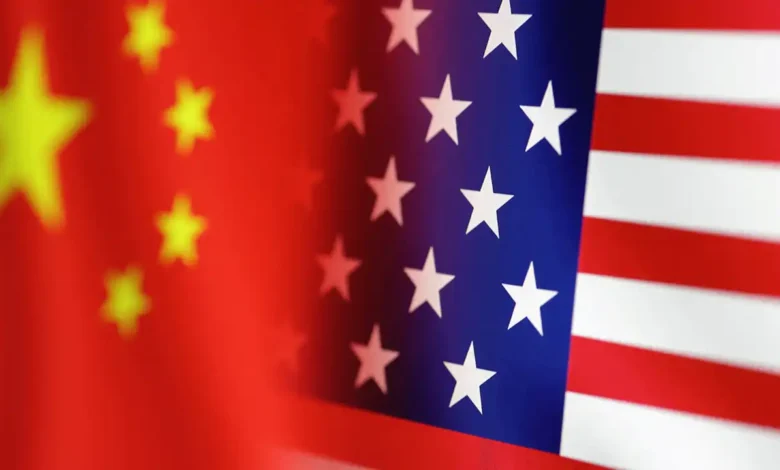A Bet of Diplomacy – The US and China

In 1967, as the Vietnam War raged, international relations theorist Hans Morgenthau considered the legitimacy and practicality of military intervention. Although he was a founding father of realism, he acknowledged the importance of ideology in the interventions of the US and the Soviet Union. The two superpowers were driven not only by power politics but also by ideas, which could sometimes lead them astray. Morgenthau argued that American policymakers needed to embrace the cold calculus of national interest.
As the US navigates its complex relationship with China, diplomacy is essential for managing the tensions and fostering cooperation, with ongoing diplomacy efforts between the US and China crucial for addressing economic, security, and political issues. What does the US want from China? The US can compete effectively by blunting Chinese activities that undermine American interests and by building a coalition of forces that will help the United States secure its priorities, all while managing the risk of escalation.
The Biden administration’s National Security Strategy recognizes China as the only state with the intent and capability to reshape the international order. The US seeks to expand its economic ties with China, increase trade, and access China’s vast market. The US wants China to open its markets, protect intellectual property rights, and address the trade deficit. The key economic interests include market liberalization, intellectual property protection, addressing the trade deficit, increasing US exports to China, and encouraging Chinese investment in the US.
The success of US foreign policy toward China heavily relies on effective diplomacy, which is necessary for mitigating conflicts and advancing mutual interests, showing that diplomacy between the US and China is pivotal in shaping a stable international environment.
The administration takes seriously China’s efforts to surpass the United States in technology, increase the world’s dependence on China’s supply chains, ramp up regional military operations, and align more closely with Iran, North Korea, and Russia.
However, American objectives do not require China’s political transformation, and there is no guarantee that the end of communist rule would produce a more restrained China. After all, the end of communist Russia eventually gave way to Putin’s Russia.
The US is concerned about China’s growing military presence, territorial claims, and influence in the Asia-Pacific region. The US wants China to adhere to international norms, respect neighboring countries’ sovereignty, and address cybersecurity threats. The erratic handling of COVID-19 and disregard for democratic norms are seen as proof that “the East is rising and the West is falling.”
Biden has repeatedly framed the competition as one between democracy and autocracy, plainly stating that China is a dictatorship and accusing China of genocide in Xinjiang. The US promotes democratic values, human rights, and the rule of law in China. It wants China to respect religious freedom, release political prisoners, and improve its human rights record.
The US faces a major challenge in managing its relations with China, the world’s second-largest economy and military power. The Chinese government does not share the United States’ commitment to liberal democracy, is at odds with many of the United States’ key international partners, and pursues economic policies that harm American workers and companies. Meeting this challenge requires a nuanced understanding of the forces driving China’s external policies and a clear-eyed view of the sources of US strength.
Although history has shown that US efforts to bring about change through pressure can consolidate authoritarian rule as much as undermine it, there is hope that the Chinese people will one day enjoy greater freedoms and civil liberties.
The Cold War serves as a chilling reminder of the perils of unconstrained rivalry, and this is at odds with what the American public wants. According to a 2023 survey commissioned by National Security Action and Foreign Policy for America, a bipartisan majority of voters—87 percent of Democrats and 68 percent of Republicans—believe that US leaders should focus more on working to avoid military conflict than preparing for one. Only 21 percent regard China as an “enemy”; 76 percent view it as a “competitor.”
Read Also: Food Price Surge
The economic headwinds that China is now encountering, combined with efforts by the United States to strengthen its economic and technological competitiveness, have created a window for the two countries to stabilize their relationship, which had veered dangerously close to conflict. It is in the interest of both Beijing and Washington to reduce the risk of war and cooperate on key issues of mutual concern, such as climate change, public health, and the management of potentially destabilizing new technologies.
Xi Jinping’s summit with Biden in California last fall was a step in the right direction, resulting in efforts to curb China’s fentanyl-related exports and the restoration of military-to-military communications to reduce the risk of an unintended crisis. The US wants China to adhere to international norms, respect neighboring countries’ sovereignty, address cybersecurity threats, reduce the military buildup in the South China Sea, and increase transparency in military modernization.
On human rights, the key demands from the US are religious freedom, the release of political prisoners, human rights improvements, increased political participation, and the protection of minority rights. The US and China face emerging challenges, including climate change and environmental cooperation, competition for global influence, management of global commons (space, cyberspace, etc.), pandemic response and global health security, economic interdependence, and supply chain resilience.
Even when direct diplomacy fails to resolve key issues Washington’s openness to engagement demonstrates to the world that the US is acting responsibly and provides opportunities for the US to press the China government on its harmful policies with diplomacy playing a crucial role in navigating these challenges and shaping future relations. Including support for Russia’s war in Ukraine and other threatening actions.
The US should not be afraid to pursue peaceful victory in this competition, as Beijing isn’t afraid of pursuing victory by any means necessary. In a major address in 2020 about China’s 1950 decision to fight the United States on the Korean Peninsula, Xi said, “War must be fought to deter aggression, force must be met with force, and victory is the best way to win peace and respect.” Beijing isn’t aiming for a stalemate, and neither should Washington.
The USA’s interests in China are diverse and sometimes conflicting. While the US seeks economic benefits, it also addresses security, political, and human rights concerns.
Finding a balance between these interests is crucial for a stable and cooperative relationship between the two nations, with diplomacy between the US and China being a critical component; indeed, the successful management of US and China relations relies heavily on effective diplomacy to navigate their complex and often conflicting interests.
 Quraitulain Qureshi
Quraitulain Qureshi
Quraitulain Qureshi is a seasoned journalist and a dedicated CSS mentor. She combines her deep understanding of current affairs with a passion for guiding aspiring civil servants. You can reach her at 1995faded@gmail.com